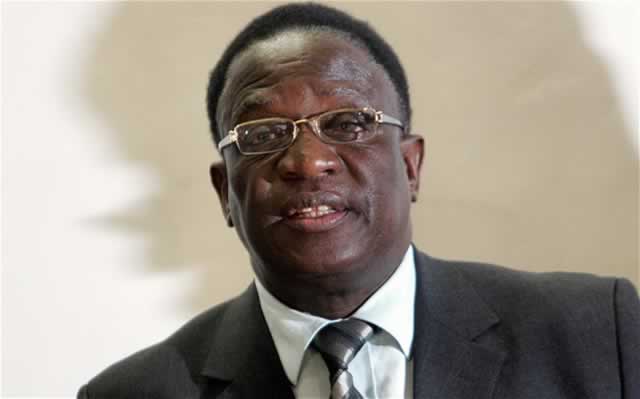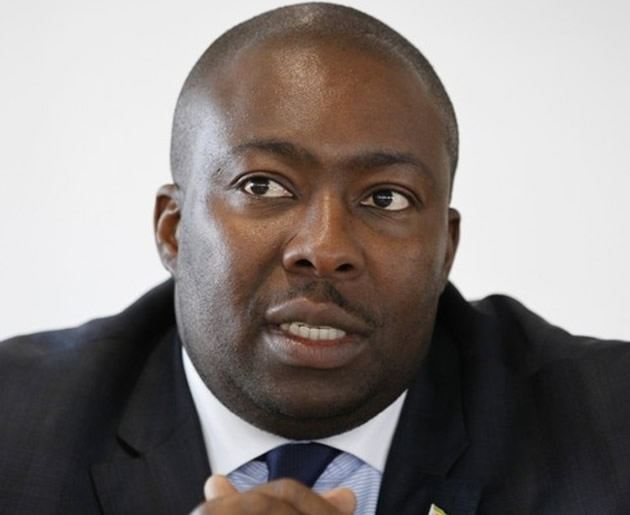Editorial Comment: Indigenisation: Let’s have one voice

Government and economic stakeholders are working on addressing the Doing Business Environment in a bid to create a conducive environment that encourages local and foreign investment, but lack of clarity on the indigenisation law seems to be negatively affecting these efforts.
If properly pursued, efforts to improve the business climate will translate into creation of employment and sustainable economic growth.
However, we are concerned that lack of a common voice from Government on some aspects of the indigenisation policy will work against these efforts. We say this in light of the seemingly differing positions on reforms relating to the indigenisation law.
While we applaud Acting President Mnangagwa’s pronouncement that Government would announce new policies that are more biased towards relaxation, we are, however, concerned that some senior Government officials have made contrasting statements on the indigenisation policy.
Only two days after VP Mnangagwa made such an encouraging statement, the nation was taken aback after Indigenisation Minister Christopher Mushohwe said there will be no review of the empowerment law.
These contradicting positions will certainly affect Government’s efforts to turnaround the economy and the successful implementation of Zim-Asset.
Which position should the nation follow in this case? Which position should investors use to make decisions? Whom should business follow? This is why we call on Government to clarify the indigenisation law so that we have one voice and one position. It is uncalled for to have differing policy pronouncements from the same leadership in a space of one month.
This will give impetus to our detractors.
The indigenisation laws are part of the bigger scheme relating to the Doing Business Environment. Therefore, the law should not be implemented in isolation of other investment policies. Now that Government, together with development partners, is addressing the Doing Business Environment, it is an opportunity that we should take to synchronise our policies. If the review is to affect other economic policies, the indigenisation law should not be an exception. This is why Acting President Mnangagwa’s pronouncement should carry the day as it is in line with the plethora of reforms the Government is undertaking to improve the business environment.
This is in the spirit of encouraging investment, resuscitating industry and the manufacturing sector with a view to creating employment in line with Zim-Asset.
That is the spirit that should dictate Government policies in the New Year.
This does not mean that we should do away with indigenisation. Not at all, the policy is here to stay. But there are some concerns relating to the law which make investment difficult. Acting President Mnangagwa correctly said that the review to be announced early this year will make investment easy.
We call on Government to steadfastly and speedily announce the new policy measures referred to by the Acting President.
It is not the indigenisation law only that requires attention. Acting President Mnangagwa mentioned that part of the measures included doing away with bureaucracy to speed up investment.
Our economy requires injection of new money to address the liquidity crunch.
The economy continues to be dragged down by liquidity shortages, antiquated plant and machinery, cheap imports and high cost of production. Significant investment into the economy is needed for re-tooling, re-capitalisation and overhaul of the antiquated machinery, and for value addition.
Given the need to continue improving our investment climate in light of the need for both domestic and foreign investment, the 2015 Budget needs to further provide clarity on our Indigenisation and Empowerment Framework.
This will ensure consistency and predictability in Government’s engagement with stakeholders and investors.
We, therefore, need to look at all the investment policies to align them to international best practices. No nation can succeed in isolation.
Therefore, Government’s sustained efforts to clarify the indigenisation law will provide the catalyst for new investment.
Clarity of economic policies steers growth and opens a nation to investment, both local and foreign.
Investment laws give guidelines and direction which potential investors both local and foreign can use to make investment decisions. No investor, existing or new, will take a position before first understanding the investment environment.
Already Government has instructed the downward review of key cost drivers that have a bearing on the country’s pricing structure.
A recent Cost Drivers Analysis of our economy showed that the nation’s international trade flow and its composition point towards a sustained loss of competitiveness.
Indeed 2015 looks set to bring good tidings for this country, but the onus is on Government and all stakeholders to actively pursue policies and strategies that will make this possible.









Comments